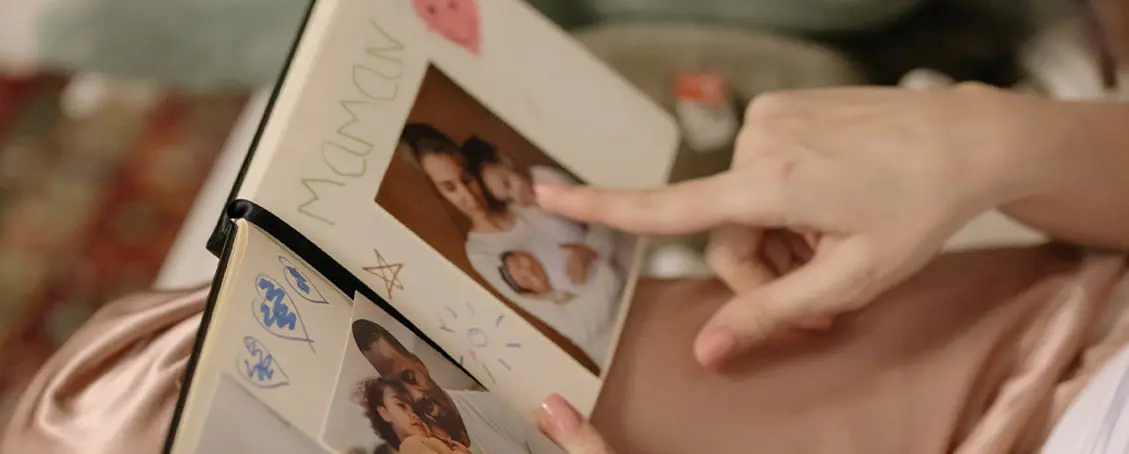Moving on without your mother

All mourning tends to be painful, but the pain can be devastating when your mother is the one you’re losing. The death of the one who cradled us and cared for us leaves a void as large as her presence once occupied.
A mother is at the centre of our life for a very long time. Even as adults, we remain attached to the one who gave birth to us. These bonds are special and leave traces beyond death. The need to talk about her, to evoke memories and to validate your feelings will take on the colour of the link that united you to her.
Whatever your relationship with your mother, grief and tears are part of the mourning process, and the pain you feel (along with emotions such as anger, frustration or guilt) is legitimate and healthy.
Keeping a memento
After the funeral, a meeting can be arranged to distribute personal items that belonged to your mother, a very important ritual in the grieving process. This family reunion will allow everyone to share memories, heart-to-hearts and feelings with others.
Suzanne Pinard, author of De l'autre côté des larmes - Guide pour une traversée consciente du deuil (Beyond the Tears – A Guide to Mindfully Navigating Grief), advises each member of the family to choose an object that is meaningful to them: “It can be somethng as ordinary as a pair of slippers or an old shawl! The important thing is what the object represents, emotionally speaking, to the person who chooses it.”
Carry on the torch?
One of the ways keeping her memory alive is to perpetuate her little habits and traditions. For example, making the fudge or holiday recipes that warmed both your stomach and heart. And while it’s true that things will never be quite the same without Mom, these opportunities to honour her memory can be soothing.
To keep family traditions going, someone will have to take over the role of convener, which often falls to mothers. They’re often at the heart of family celebrations and extended family gatherings. They’re the ones who think of marking birthdays with a card, gift or meal, and they take care of sharing news between different parts of the family. And they’re the ones family members turn to when the need arises.
If no one takes up the torch, then the mother’s passing can mean the end of family reunions, as Pinard explains: “There are families that you may think are tightly knit, and yet when the mother dies, they break apart because she was the one who connected all those people.” Each of the children will then tend to withdraw into their own clan, which will create its own traditions, inspired—or not—by the maternal model.
The life cycle
Even if you’re an adult and an orphan, you’ll always be your mother’s child. Losing your mother means losing a part of yourself. It’s normal for the death of the one who brought us into the world to make us think about our own mortality. Our reference points and certainties are shaken. It can bring many people to deeply reexamine their lives.
If your relationship with your mother was positive and rewarding, then her departure is felt as a void that is difficult to fill, and the mourning is experienced intensely. In some cases, consulting with a specialist may be advisable.
Conversely, if you had a difficult relationship with your mother, her death can be a form of liberation, since it means the end of her hold on your life and an opportunity to turn the page on a painful past.
This stage of your life is a chance to take stock of the road you’ve travelled as you leave behind you the hand of the person who held yours so many times.
Some books that can help
De l'autre côté des larmes - Guide pour une traversée consciente du deuil, Suzanne Pinard, 2e édition, éditions de Mortagne, 2005.
Surmonter l'épreuve du deuil, Roger Regnier, Line Saint-Pierre, 4e édition, Québécor, 2007.
Surmonter le deuil de ses parents, Alexander Levy, Intereditions, 2001.
Réinventez vos cérémonies, fêtes et rituels!, Chantal Dauray, Stanké, 2004.
Cette année s'envole ma jeunesse, Jean-François Beauchemin, Québec Amérique, 2009.
Resources
Ordre des psychologues du Québec
https://www.ordrepsy.qc.ca/english/
Association des psychothérapeutes du Québec (available in French only)
https://psychotherapeutesquebec.ca/
Maison Monbourquette (available in French only)
http://www.maisonmonbourquette.com/
© 2021 Magnus Poirier Inc. All rights reserved